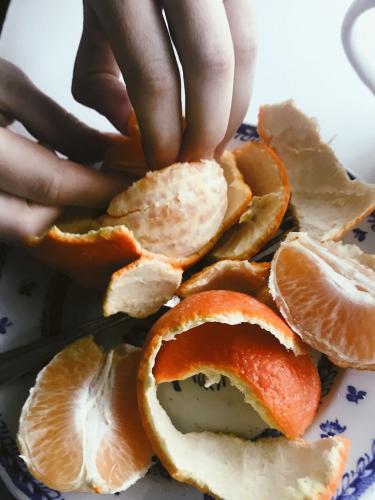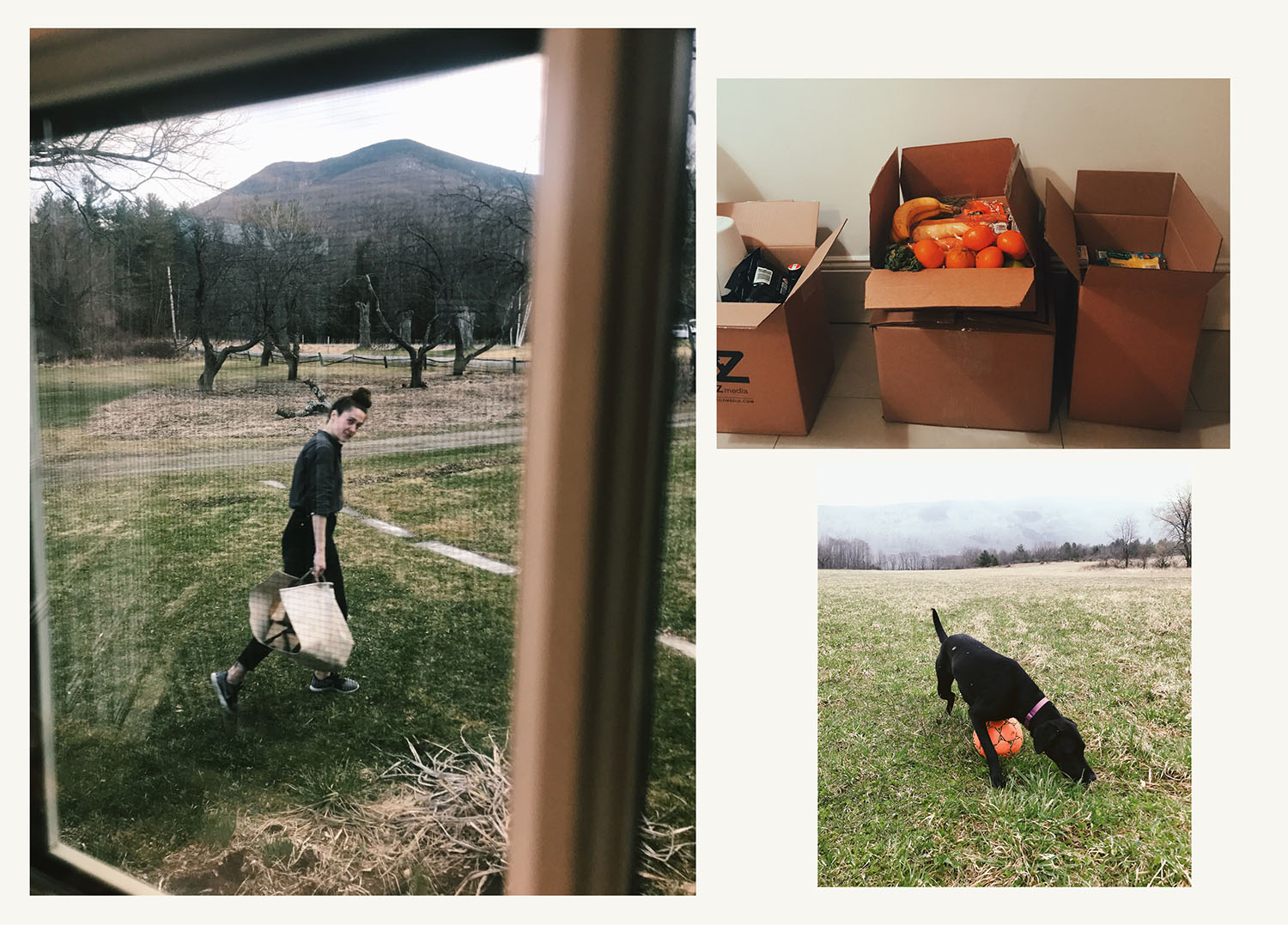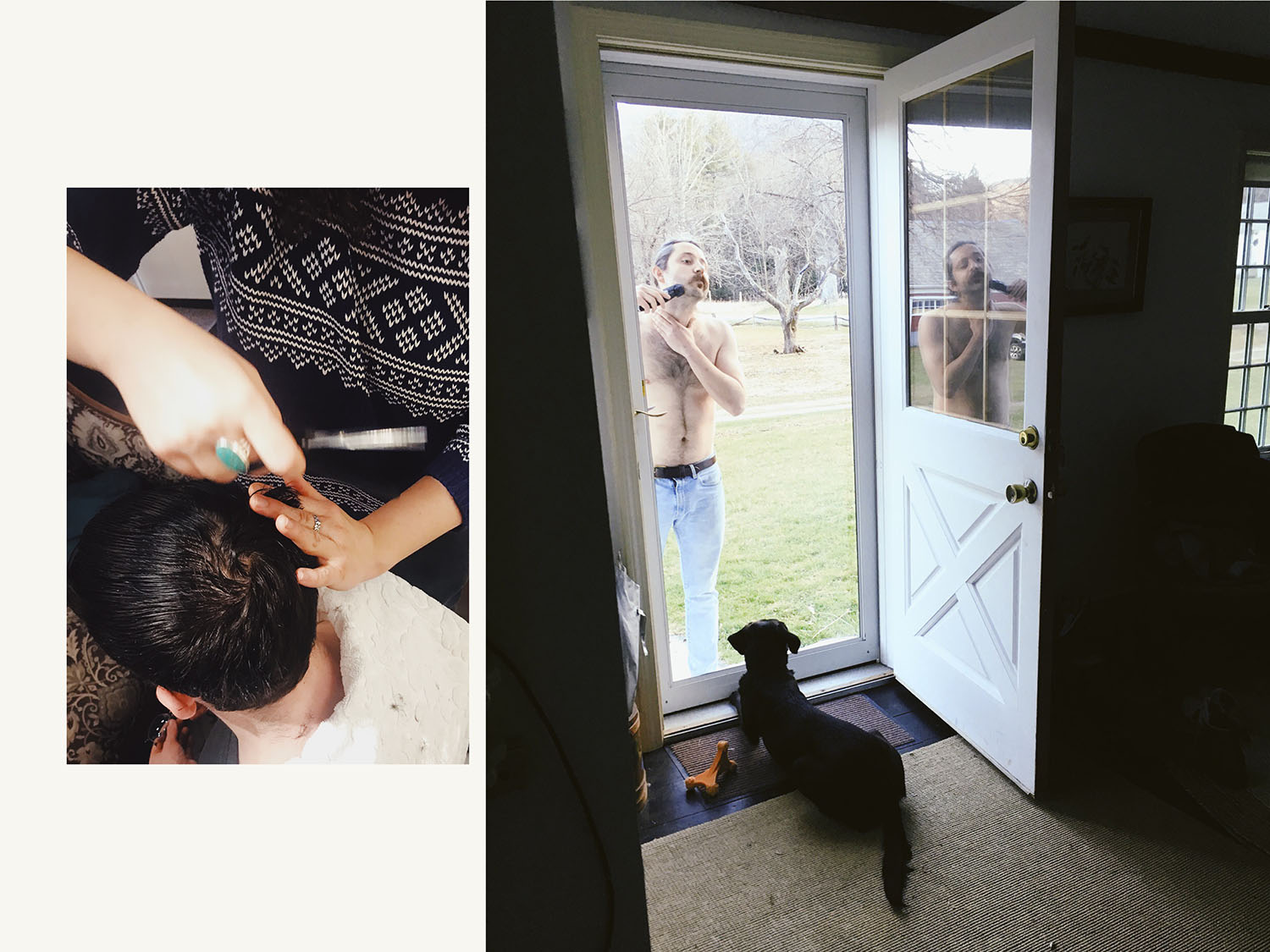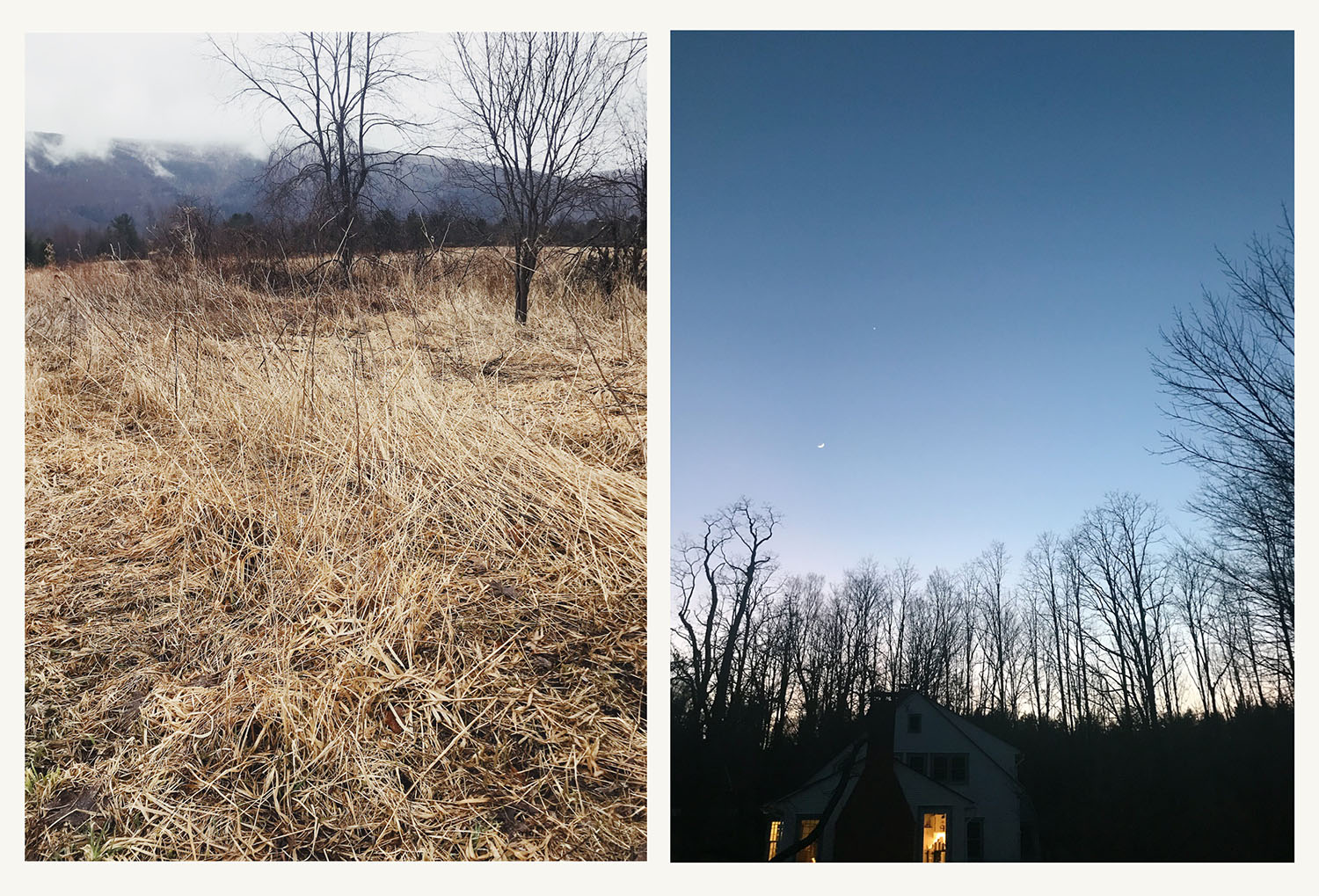1.
We’ve been here twenty-six days, seven of us and the dog, and everyone needs a haircut. When we left New York for my in-laws’ farm in early March, we imagined we might be gone a week or two, and that at least in a rural area we could maintain a responsible distance from other people while still going outside. This would have been difficult in the neighborhood where I live with my wife and our dog. The park was already growing overcrowded and tense; dogs were snapping at each other, cued by snappish owners. “Your dog is aggressive,” a woman yelled at a man. “I think you should leave.” “Fuck you,” he said. “You’re aggressive.”
It was not long before our days here took on a tinge of surreality. It wasn’t the fear—or it was the fear, but it wasn’t mostly the fear. It was something to do with time, a total suspension of any ability to plan a life beyond this house where we now, until future notice, live. We have entered, unwittingly, a communal living situation with no end date. One of the most popular books this year proposes to encourage people to relearn how to be bodies in time, a skill we are now practicing almost exclusively.
We are working, I suppose, those of us who still can work. But the purpose of our being here isn’t work; nor is it vacation. The purpose of our being here this month, and perhaps next month, is to stay alive, and far enough away from other people so that they can stay alive. We are here primarily so that we can continue being here. Never has daily life had so clear, reduced, and unsettling a task.
And yet we are lucky, lucky, lucky, with friends—social workers at hospitals, physicians and nurses in ICUs—whose days have grown unimaginably longer, full of crisis, relentless. The day we got here, we all went through our calendars and erased everything for the month of March. A few days ago, we did it again for April.
2.
How much one’s ability to order present time relies on imagined future time. There is nothing at all to report, no plans, no assignments due, trips in mind, meetings, parties, classes, appointments, dinners, no events of any kind to anticipate, prepare for, even dread. We are, instead, adrift in an eternal present tense. “The days just… go,” my wife said to me one night before bed.
But we are sleeping, waking, eating, walking, talking, reading the news, watching the Earth turn slowly greener. Our hair is growing, the birdsong outside gets louder. I can hear someone clipping their toenails upstairs. If this is not enough evidence of time passing, what is it that usually makes time seem to pass? If there is nothing to report, do these days mean nothing?
 Because my brain isn’t producing much of use lately, I am more aware than usual of the repetitions of domestic labor, the eerie loop of wiping the same counters over and over. Care work, the work of hands, vanishes as soon as it’s complete because so much of its function is maintaining a baseline wholeness and order: the body sustained by regular feedings; dishes returned to cleanliness, i.e., usability; the dog exercised and watered; the laundry done so it can be dirtied and redone. I am a crumb factory and counter-wiping machine, a mess-adjuster, a maker and then consumer and then maker of meals, a reader of books that I then forget.
Because my brain isn’t producing much of use lately, I am more aware than usual of the repetitions of domestic labor, the eerie loop of wiping the same counters over and over. Care work, the work of hands, vanishes as soon as it’s complete because so much of its function is maintaining a baseline wholeness and order: the body sustained by regular feedings; dishes returned to cleanliness, i.e., usability; the dog exercised and watered; the laundry done so it can be dirtied and redone. I am a crumb factory and counter-wiping machine, a mess-adjuster, a maker and then consumer and then maker of meals, a reader of books that I then forget.
It so happens that mostly days consist of ephemeral things, which we all always knew except maybe we all did not know it quite like we now know it. Yesterday, looking for evidence that ephemeral things, like meals or feelings, really happened despite all evidence to the contrary—in other words, that we are still here, bodies moving along steadily in time—I began writing down lists to concretize us. I write these lists as proof that things are happening here, in order to make the day feel real. Instead, they read like grocery lists, or an amnesiac’s scrawl. “Oranges for breakfast. Eggs for breakfast. More coffee. Too much coffee. Oranges again.”
3.
What is there to report:
- Present view: hills, apple trees, grass, chives, fence, ladybug, my own car, woodshed
- Present company: Grace, Luc, David, Cecily, Lora-Faye, Dave, Mazie
- Present sounds: David singing to the dog, Dave’s voice on the telephone, muffled by floorboards, Cecily running a shower, my own typing, Luc’s heels hitting the wood floor.
- Three fires outside; twelve fires inside.
- Bagels, ramen, adobo chicken, chocolate cake, lentil soup, arepas with black beans, pesto, pear galette.
- 4 trips to the dump
- Changed the oil in the car
- Dog found in the woods: full deer skeleton (ate); baby bird head separated from body (did not eat); partial deer skeleton (picked up but did not eat); field mouse (ate); various scat (eats deer and sometimes horse, ignores others); Canada geese; tuft of fresh moss (mouthed); another field mouse (played with, tossed in the air, did not eat); one million sticks.
- Dog baths: 3 (rolled in a dead animal; rolled in mud; ran through the marsh)
- Haircuts, twelve new grays
These lists hold nothing important, nothing useful, nothing even I will care to read a week or a month from now. They merely serve as a kind of proof of ongoingness: We are still here. We moved our bodies, clean, fed, grateful, aging—grateful to be aging—forward another day.
These dispatches are from #VQRTrueStory, our social-media experiment in nonfiction, which you can follow by visiting us on Instagram: @vqreview.









